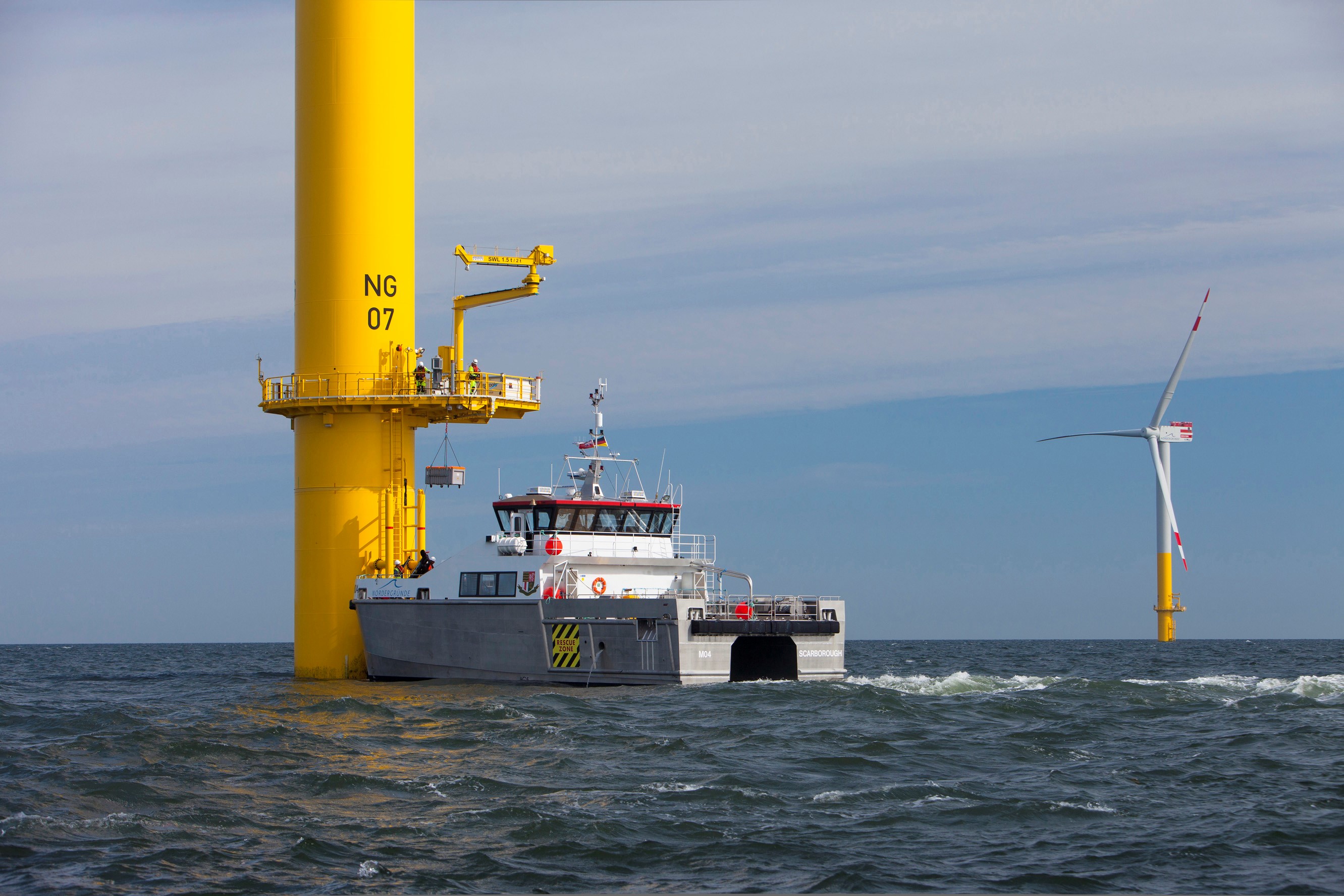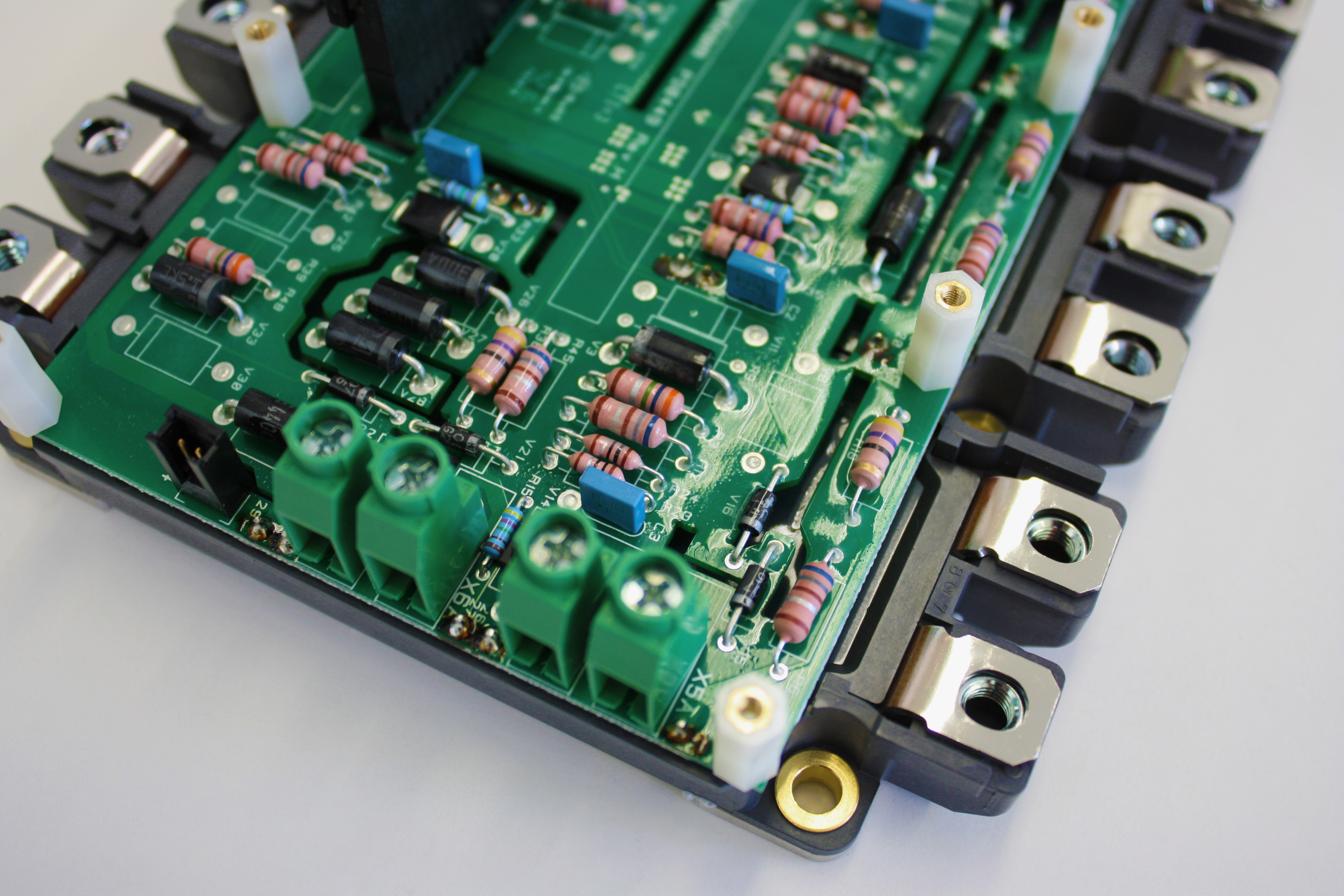More reliable wind turbine components improve profitability
Better Protection for Power Converters
Power converters are among the most frequently failing components of wind turbines and are thus associated with high costs and long downtimes. A better understanding of the causes of their failure is vital in the race to develop effective protective measures and thus improve the profitability of turbine operation. A project consortium composed of operators and manufacturers of turbines, semiconductors, and converters is working closely together with research and academic partners in the project ReCoWind, funded by the German Federal Ministry for Economics Affairs and Energy (BMWi). Within the three year project duration, field data from various sites and turbine types are being analyzed, damage models derived, and experimental tests performed on components.
Economic losses of around € 200 million per year arise in Germany alone due to repair costs and revenue losses resulting from failed power converters in wind turbines. At offshore sites in particular, repairs present a logistical challenge and cannot be carried out at short notice. The often severe damage to power modules further hampers the clarification of the complex interdependencies. However, the project partners have a vested interest in better understanding which influencing factors trigger defects and what processes occur up to the failure of power electronic components.
As part of the ReCoWind project (long name: Reliable Power Converters for Wind Turbines), these questions will be systematically assessed. The main focus is on the power-semiconductor modules, their driver units as well as the DC-link components representing the core components of the converters. In view of results of previous investigations, particular attention is paid to the influence of moisture. The information base is to be expanded using special measuring techniques which are being developed specifically by the partners and also tested on commercial components under realistic conditions.
`Thanks to the involvement of various actors from the value chain and research sector, we are able to achieve genuine added value. In this way, we can also ensure the transfer of the findings to the design and development phases as well as to the operation of existing turbines`, explains Dipl.-Ing. Christian Broer, Head of Department at Fraunhofer IWES.
It is hoped to improve the converter reliability, for example, with a more robust design, the development of procedures for accelerated component testing, and improved concepts for operation and maintenance. On the basis of experimental investigations, damage models and models for calculation of the remaining service life are generated. At the same time, comprehensive failure and operating data is evaluated and field measurements are carried out, e.g. at the wind farm Nordsee One with its 54 6 MW turbines. The findings will ultimately be used to derive recommendations with respect to design, instrumentation, operation and maintenance, which will be made available to the industry.
Partners: Bender, EnergieKontor, ForWind, Fraunhofer IWES, Infineon, innogy, Leibniz University Hanover, NordseeOne, Senvion, University of Bremen, Woodward
Funding volume: € 3 million
Funding body: German Federal Ministry for Economics Affairs and Energy (BMWi)
Term: 12/2018-11/2021
Last modified:

